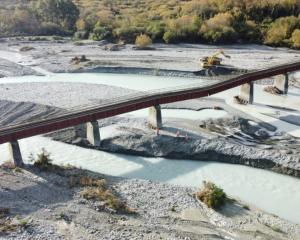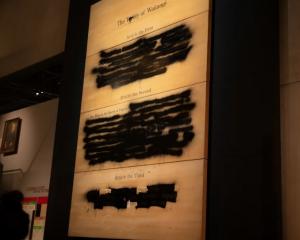Fonterra's great hopes for the burgeoning milk markets in China are crashing and burning in the contaminated milk scandal engulfing its 43 percent stake in the Shijiazhuang Sanlu Group Co. Ltd.
Fonterra executives have known for weeks that the Sanlu Group's cheapest milkpowder for babies was contaminated with poisonous melamine. A least one baby has died and 432 are known to be sick.
But Sanlu did not admit to the contamination until September 11; it initially claimed the problem was "counterfeit" milk with fake labels.
Fonterra did not admit the knowledge in statements it issued on Thursday and Friday, even after being specifically asked whether it had doubts about the veracity of the "counterfeit" claim. It told the New Zealand Government of the problem nine days ago, according to Trade Minister Phil Goff, who said he did not believe the scandal would damage our trade interests.
Other major dairy companies, such as Nestle, had been caught up in similar scandals in the past and it was possible several other companies had also supplied the contaminated milkpowder, Mr Goff said.
Fonterra said today it had pushed for a full public recall of all affected product: "Consumer safety has always been our number one priority."
But it admitted knowing about the contamination in last month.
"From the day that we were advised of the product contamination issue in August, Fonterra called for a full public recall of all affected product."
Sanlu held back 2176 tonnes of contaminated milkpowder and recalled 8210 tonnes of the product. About 700 tonnes of formula is still being sought.
Fonterra's joint venture is a subsidiary of government-controlled Shijiazhuang Sanlu Group, which announced last October that China's biggest milkpowder marketer would be floated in the second half of 2008.
Chinese yuan-denominated A shares were to be offered in the joint venture founded by Sanlu Group and Fonterra.
The listing was the long-term plan for the venture in the north Chinese province of Hebei, from its foundation -- when Fonterra paid 864 million yuan ($NZ150 million) -- and its projected revenue for 2008 was 8.6 billion yuan, with a target of 30 billion yuan in 2010.
Headquartered in Shijiazhuang, the capital of Hebei province, Sanlu is China's third biggest dairy company, behind the Yili and Mengniu companies based in Inner Mongolia. The company chair who signed the deal with Fonterra, Tian Wenhua, said the joint venture was designed from the start to be floated on the Chinese sharemarket.
Now those plans have been thrown into disarray: Chinese authorities have ordered the Shijiazhuang Sanlu Group Co Ltd to halt production and its Ministry of Health has ordered all milkpowder produced by Sanlu withdrawn from sale.
And authorities and consumers in China are calling for dairy industry executives involved in the scandal to be held accountable.
Sanlu executives are being targeted after Health Ministry party secretary Gao Qiang told the South China Morning Post the government became aware only a week ago that drinking the milk could cause kidney stones.
Mr Gao denied the government had covered up the problem to avoid detracting from the Beijing Olympics and said it was a "severe food safety accident".
"Sanlu Group should take a large part of the responsibility," he said.
Police in Hebei have detained 19 people in connection with the case. Hebei vice-governor Yang Chongyong would not say whether Sanlu managers were among those held.
Health officials said poor rural families were heavily represented among those with sick babies which drank Sanlu's "Bei Bei Infant Powder". The milkpowder cost 18 yuan; low compared to foreign brands believed to be safer.
The Los Angeles Times said that consumers knew the Fonterra Co-operative held a big stake in Sanlu.
"That was one reason some consumers said they assumed it was a trustworthy brand," it reported.
Desmond O'Toole, an adjunct professor of chemistry at the City University of Hong Kong, said melamine shouldn't be anywhere near a milk factory.
Foreign companies such as Fonterra that form partnerships with Chinese companies had to be careful, he said, particularly if they did not control the production process.
"Anything you're going to buy from China, you have to test everything," he said.
"You can't assume anything."
The South China Morning Post said Sanlu identified the problem in its supply and production chains and fixed it in time to be certain that milkpowder produced after August 6 was safe.
"Yet it stayed silent about this until last week," it said in an editorial.
"When the news broke, company officials blamed counterfeiters.
"Even after acknowledging contamination, it pointed the finger at unscrupulous dairy farmers and suppliers.
"But Sanlu must bear ultimate responsibility for maintaining quality control and ensuring the safety of its products," the newspaper said.
"Nothing is more heartbreaking and infuriating than seeing little children needlessly harmed because of irresponsibility, negligence and greed."
"Company officials knew of problems as early as March, and were aware of the contamination last month. But they only came clean last week. There have been tragic consequences."
At the weekend, many parents stood outside the main offices of the company in Shijiazhuang. When the executives refused to meet them, the parents shouted that they were "child murderers".












